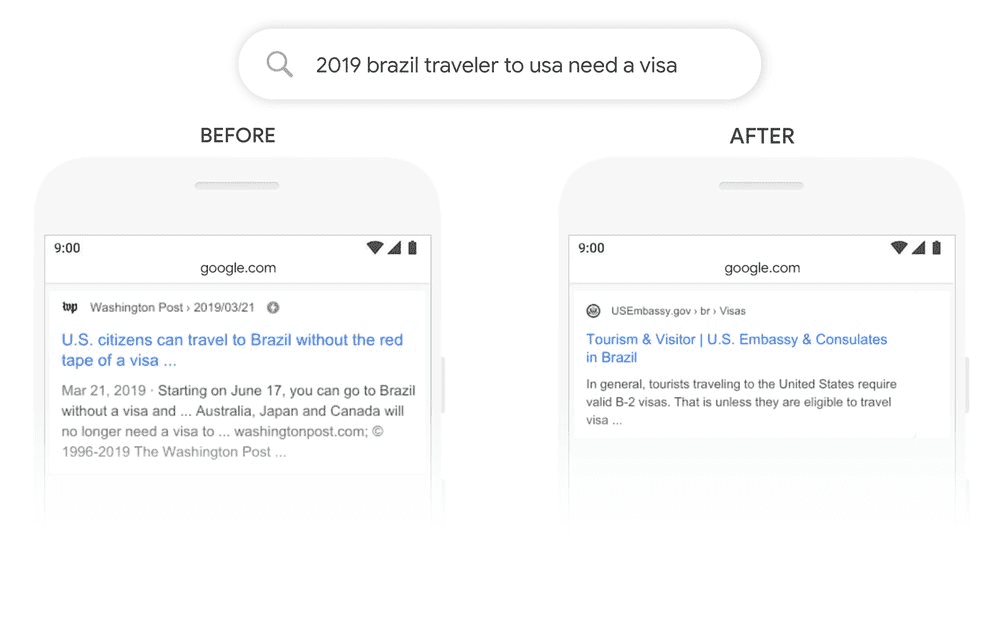In October, Google announced an update to its algorithm that the search giant described as the most important update it’s made in the last five years. This update, however, appears to be unlikely to create the mad scramble among website owners and SEOs that previous updates like Google’s Panda and Penguin updates did. The latest update, referred to as BERT (Bidirectional Encoder Representations from Transformers), impacts the way that Google interprets a search query to better understand the context of the question being asked.
Pandu Nayak, Google’s VP of Search, illustrated an example of the latest changes in an October 25 blog post as follows:
“Here’s a search for “2019 brazil traveler to usa need a visa.” The word “to” and its relationship to the other words in the query are particularly important to understanding the meaning. It’s about a Brazilian traveling to the U.S., and not the other way around. Previously, our algorithms wouldn’t understand the importance of this connection, and we returned results about U.S. citizens traveling to Brazil. With BERT, Search is able to grasp this nuance and know that the very common word “to” actually matters a lot here, and we can provide a much more relevant result for this query.”

It’s true that as a result of this update the top result has changed, but only because it was more relevant to the specific query. It isn’t that the US Embassy site is better optimized for BERT, only that it happened to be a better match for the actual question being asked.
What can/should you do to optimize your site for BERT? Nothing, really.
Typically, when Google announces an algorithm update, website owners will jump into action right away to optimize their sites to accommodate the latest change. Whereas previous updates have prompted websites to improve loading time, restructure to a mobile-friendly layout, or move to https to create a secure browsing experience, BERT is less about effecting change and more about the evolution of the search engine to better understand the content that it indexes and the goals of those who are searching for it.
Google’s Danny Sullivan summed it up best in a recent tweet:
There’s nothing to optimize for with BERT, nor anything for anyone to be rethinking. The fundamentals of us seeking to reward great content remain unchanged.
— Danny Sullivan (@dannysullivan) October 28, 2019
Do you have questions about this post or want to learn more? Reach out to your Tenrec account manager or account_services@tenrec.com for more information on this and other topics.
